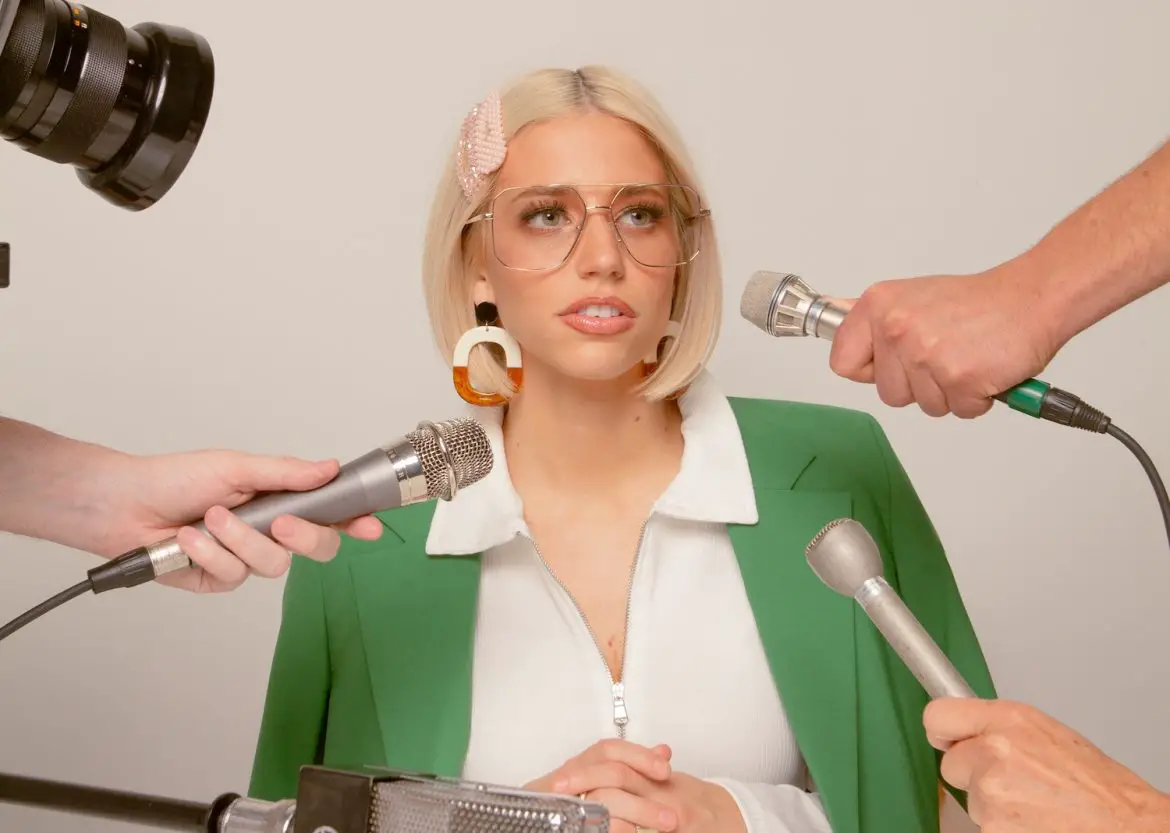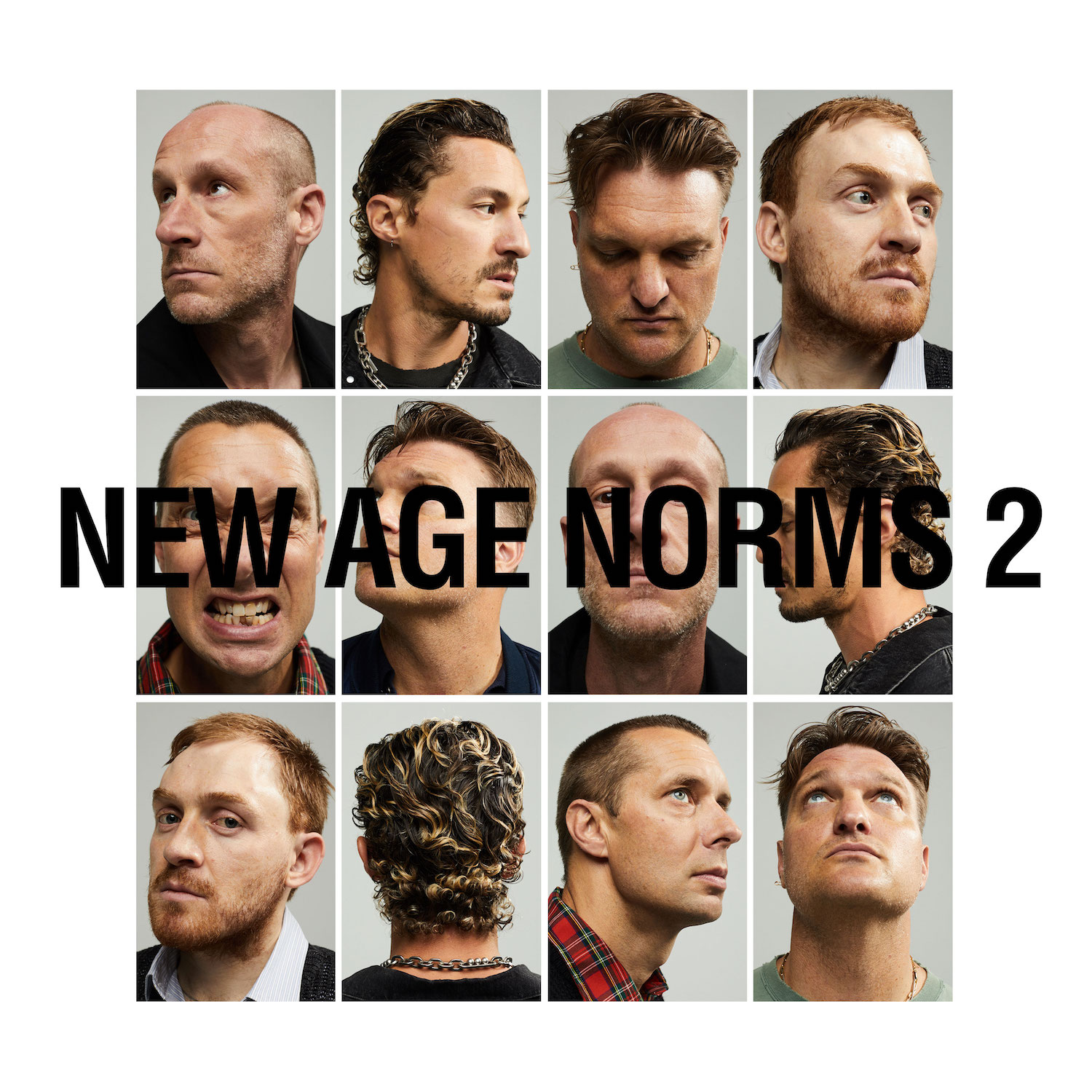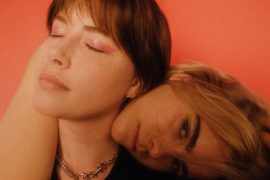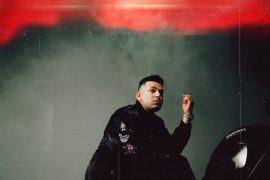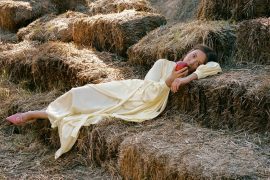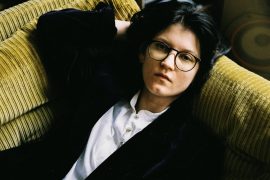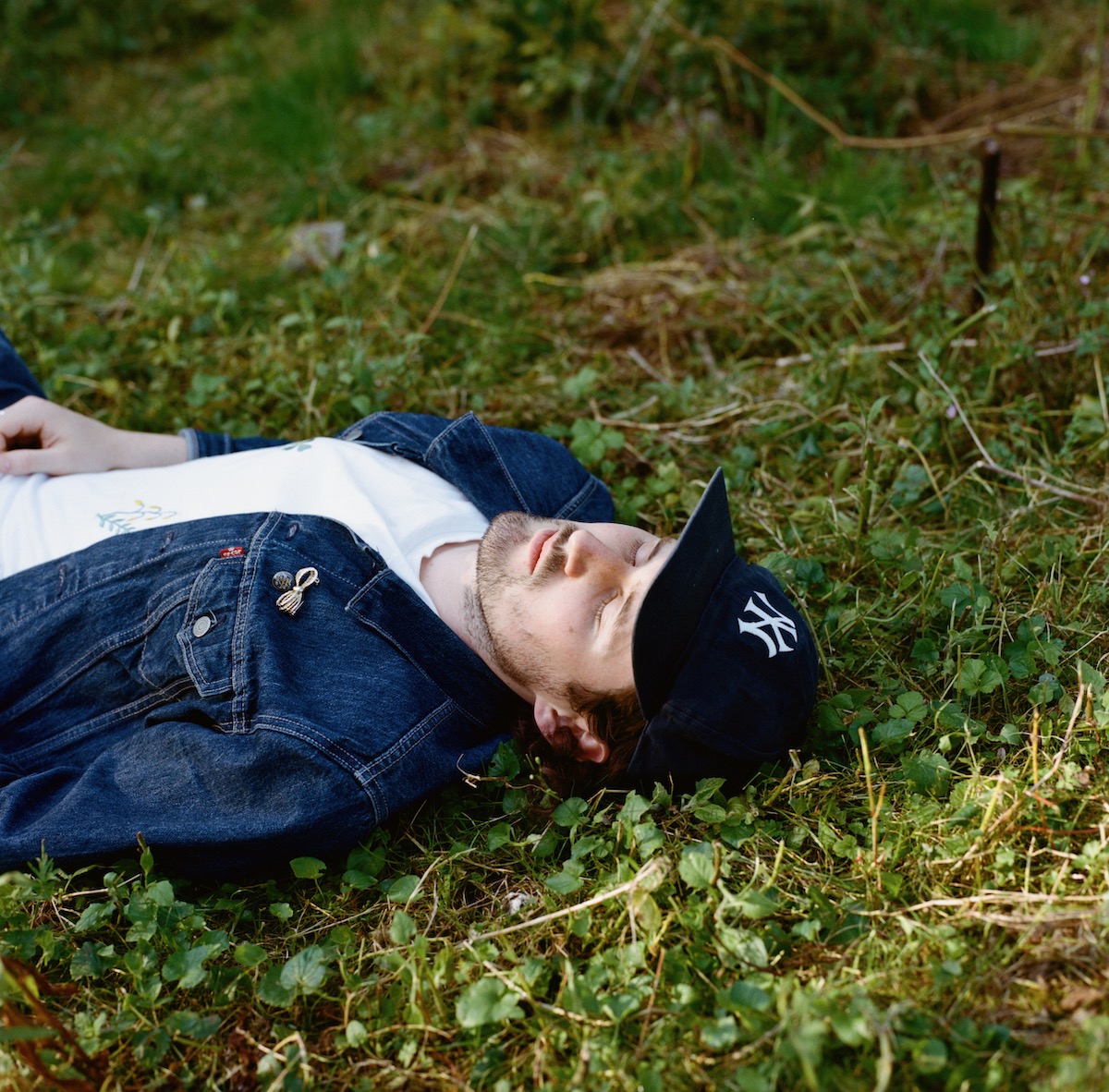Indie pop singer/songwriter Josie Dunne opens up about her beautiful, stunning debut album ‘TENNIS’ in an intimate conversation about love, lyrics, and artistic intent.
Stream: ‘TENNIS’ – Josie Dunne
The first thing to know about Josie Dunne is that she’s just as infectiously bright and bubbly as her music. Hailing from the Chicago suburbs and now living in Nashville, the singer/songwriter embraces authenticity in songs, which for her has often meant being light and fun, while telling a meaningful story.
A longtime Atwood Magazine artist-to-watch, Dunne released two exceptional EPs and a litany of catchy, cathartic singles during the four years she was signed to major label Atlantic Records. Now fully independent, she spent the past few years embarking on her most ambitious project yet, and the result is nothing short of spectacular: Dunne dives into the intimate depths of love on her stunning debut album TENNIS, a catchy, groovy, and glistening concept album brimming with heartfelt emotion, passion, and deep intent.
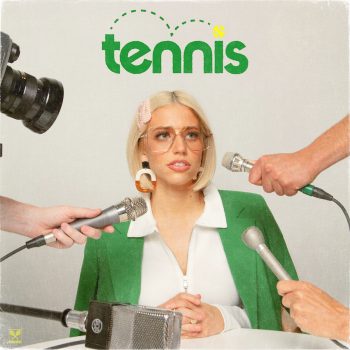
I’m holding off the heat in the discussions
You’re holding onto me instead of grudges
It took a couple weeks and all the sudden (Yeah)
It just starts adding up
But I don’t know why we
Let it go longer than it has to be
It’s so dumb
‘Cause you’re so sweet
So I’m patching up the sour
I make it my fault trying to make it your fault
But baby, that don’t make it alright
We’re pointing fingers just to make a point
But nobody has to win this time
I wasted a day, you ruined a night
I twisted your words, we’ll call it a tie
Yeah, we’re missing the point
trying to prove a point tonight
– “POINT,” Josie Dunne
Released April 29, 2022, TENNIS is a resounding triumph for Josie Dunne: A record of tremendous depth, warmth, and emotion that greets the ears not as a series of thirteen songs, but as an enveloping and immersive experience. Her first stab at co-production sees Dunne teaming up with her longtime go-to producer Connor Thoutte, and also features the musicianship of longtime bandmate Will Honaker alongside a who’s who of fellow rising independent pop artists (including Phil Good and joan).
“TENNIS is a concept album that tells one story based around the idea that love is a game of back and forth, like tennis,” Dunne explains. “I obsessively worked on this project for about 2.5 years and I feel like I put my whole self into it. This record is really ‘me’ in a way I haven’t accomplished with any of my other music to date.”
She adds, “The whole album really follows this couple who’s been together a while – ‘a couple of Midwest kids, a couple of years into practice,’ so they’ve been together for a while, and it just follows this couple as they go through an up and then a down swing where to play to the communication or to play to the back and forth communication kind of tears them apart a little bit, and then also brings them back together, and it’s through that back and forth that they find forgiveness and then kind of gratitude for each other at the end. The last thing that you hear is the first thing that you hear, so it kind of signifies that the whole record is supposed to play on a loop. Any relationship that I’ve ever had, and then a lot of the relationships that I have as examples in my life, my parents, my grandparents, whatever friends and family that have been together for a long time, every example I’ve ever seen is, it’s not always good, but you just kind of decide that you’re down to do that up and down, that back and forth – so that’s really kind of the whole point of the record and the theme.”
Love is a cycle of highs and lows, ebbs and flows, ups and downs, volleys and serves – or as Dunne sings in the album’s second track “LOVE,” “It’s not a new routine, but we keep it in motion, we keeping it going and that’s fine by me. I don’t like it – I love it…” Love is a collection of many beautiful moments, some ugly moments, and a whole lot of in-betweens. Game-set-match, you might say; to capture this, Dunne delves into her own experiences, turning memories into vivid, compelling anecdotes and stories that illustrate intimacy in real life, and love in motion.
“I decided for this album, because it’s my first album, if I’m gonna do a record about love, I don’t want it to be like, ‘We met and we’re in love with each other,’” Dunne explains. “I want it to be a deeper thing and talk about just like realer shit, you know?
These compelling lyrics are accompanied at every step of the way with a captivating indie pop soundtrack full of radiant beats, buoyant melodies, and Dunne’s own golden vocals. She soars with raw energy and an undeniable allure, creating musical magic through deeply vulnerable moments of reflection, reckoning, connection, and wonder.
“I think the number one thing that I’ve gotten back is that people can hear the thought and the care that I’ve put into every single aspect of the album,” she shares. “I hope that whether people like my voice, they like the songs, they like the lyrics, they can relate to it or not, that they just can hear the intentionality behind everything and the thought process behind everything. Because that was just such a big part of making it…”
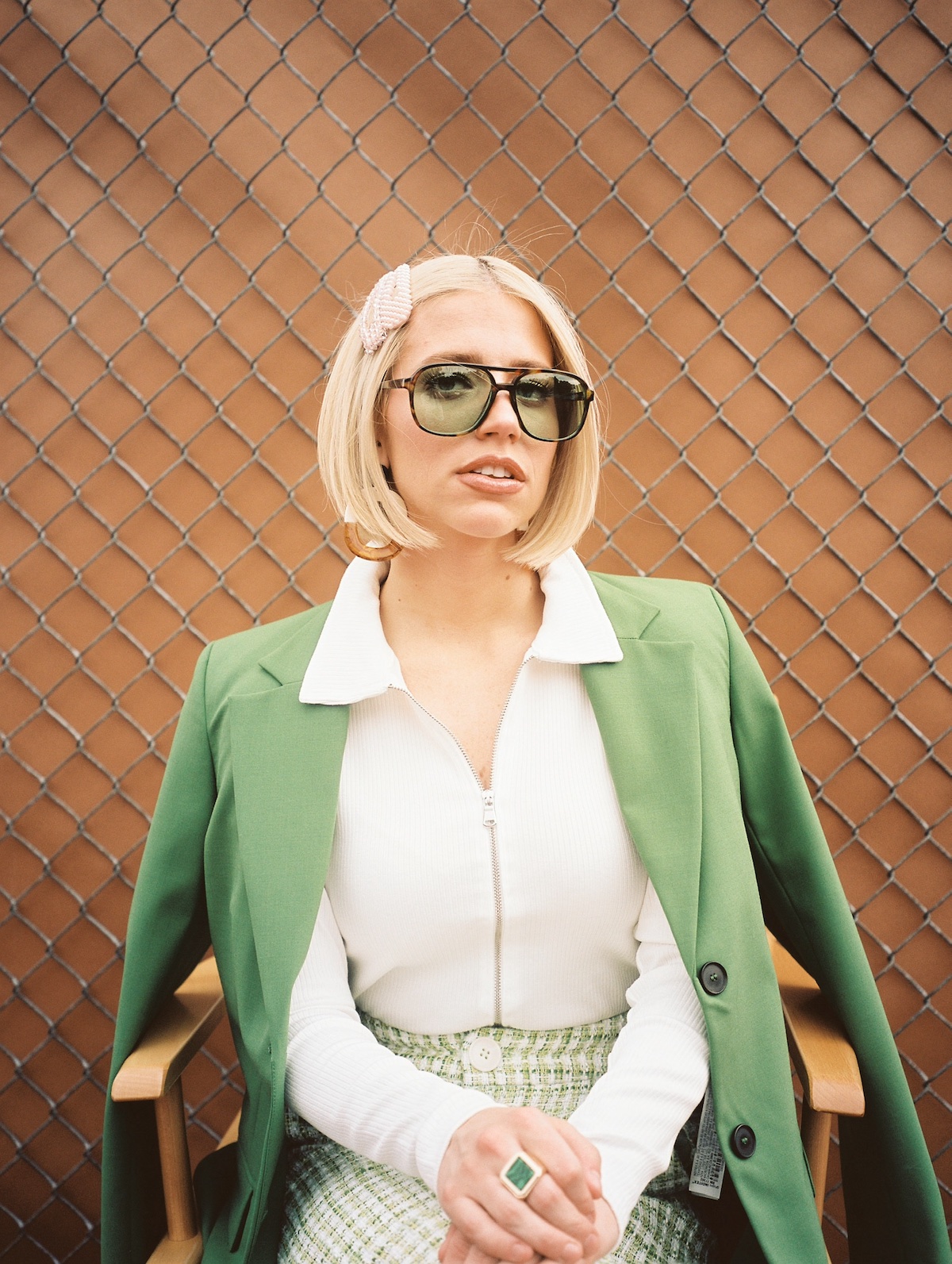
There’s no denying the sheer, achingly emotional depths of TENNIS.
Long an exciting beam of light on pop music’s horizon, Josie Dunne has outdone herself in every way, and doing it as a fully independent artist makes the entire endeavor all the more impressive. Intimate and engaging, TENNIS is a true smash (wink wink).
Atwood Magazine caught up with the Nashville-based singer/songwriter to learn more about the music and her experience making this LP. What resulted was an intimate, laughter-filled conversation about love, lyrics, and artistic intent. Read our interview below and get lost in the beauty of Josie Dunne’s TENNIS, out now!
— —
:: stream/purchase TENNIS here ::

A CONVERSATION WITH JOSIE DUNNE

Atwood Magazine: Hey Josie! First things first, congratulations on your debut album's release. How does it feel to have TENNIS out in the world?
Josie Dunne: It’s so beyond words. It’s really bitter-sweet. I’ve been working on this from the concept up until now for two and a half years, so it feels like my baby, and it’s like, “Oh my God, my baby’s going to college, I can’t control it anymore, I can’t keep editing it and tweaking it.” And so it’s very weird, in a way it’s close to my heart, so it feels weird for it to be out and for it to be everybody else’s now, but I’m really proud of it and I’m just so happy that it’s done. I’ve done it.
It's a very big milestone, and I'm glad you finally got there. Last we connected, you were signed to a major label with whom you released a series of singles and EPs, but never an album. Now, to my understanding, you are totally independent. What has that transition been like for you?
Josie Dunne: I’m so grateful to Atlantic. They really taught me a lot about song writing, releasing music, just the entire cycle of putting out songs and writing songs and playing them live and everything. I think what has been really special about the process of this project is I have full control of it, so every single piece of it, the production, the writing, the photos, the videos. Every single piece of it is completely from my brain and completely what I want it to be, and so that’s been just amazing. It’s made it so I could make this album, which I was really obsessively creating exactly the way that I wanted it to turn out, and so I’m really, really… I think because I’m independent and I have that control, I was able to make this thing that is exactly what I wanted it to be in my brain.
How has your experience been, navigating the music industry as an independent artist?
Josie Dunne: It’s hard work. It is full on, and I feel like that it’s pretty close to how I was operating even when I was signed to a major label. I just think in this day and age, people expect that level of authenticity and that you need to be hands-on, because if the merch or the show or any piece of it doesn’t look like you, I think people have a really high bullshit radar and can tell that’s not Josie. If people really know the music, they know me, and so then you can tell if something is ingenuine and so I think it’s become more and more crucial. And it’s a ton of work, but it’s like you have to do it that way, I think, or I feel like I have to do it that way in order to really properly make all of the pieces of what I wanna make exactly how I wanna make ’em, you know what I mean? Does that make sense?
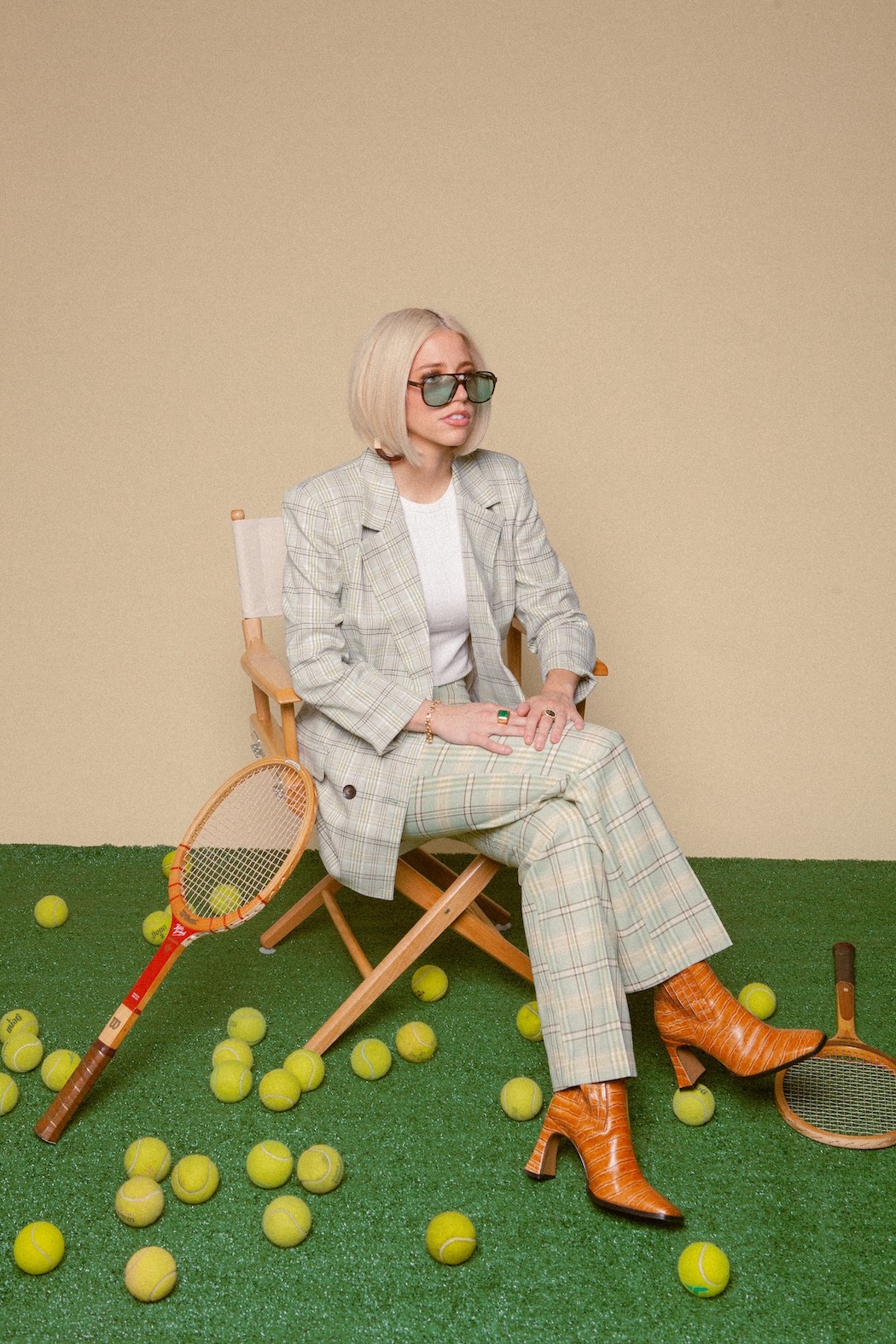
What was your vision going into this record? Did that change over the course of the creation process?
Josie Dunne: A little bit, but honestly, a lot of it was pretty core from the beginning. The whole album is one story, if you listen to it down, and it’s all based around this concept that love is a game of back and forth, like tennis, and so I knew that going in, I knew that that was the concept. And so the story kind of tweaked a little bit in the ways that the couple goes kind of up and down. Kind of tweaked a little bit, but just aesthetically, I knew that I wanted it to feel kind of… To me, the sport of tennis feels very timeless, very classic, and it has almost like a ’70s feel to me, and so a lot of the instruments we tracked real players playing live, organic instruments, a lot of Mellotron, which it’s basically the first sampler piano. And so there’s Mellotron over the whole thing, there’s live bass in a real live funk-based player, playing over most of the whole record. And so those kind of elements were super important for me to have sonically, but then at the same time, like I said, having that kind of cleanliness that feels very tennis to me, it’s like all white. I dyed my hair white. I wanted the whole thing to feel very polished, so those two worlds could blend.
Aesthetically speaking, from your music videos to the promo photos and everything in between, you've really gone all in on the tennis theme.
Josie Dunne: I don’t do stuff half-assed, I don’t know if you’ve noticed, but I was like, I totally dove in. I totally dove in.
But why tennis? Are you the biggest tennis stand in the world, or did the theme just happened to match the story of love that you are interested in singing and writing about?
Josie Dunne: It was a little bit of both. I’m actually a super shitty tennis player, I’m horrible, I can’t even serve it, but my family growing up was super into tennis, so all my extended family, our family reunions were all kind of based around a tennis court and we had cousin tournaments and stuff, and I totally sucked. I did tennis lessons once and they held me back. You had to start with these really young kids, [laughter] you had to start in the class with five-year-olds, and at the time I was 15, ’cause I’m like, I gotta keep up with my cousins, like it’s I’m getting too old to be so bad, and so in the class I’m 10 years older than everyone else, and I literally couldn’t serve it, I could not get to serve till I know the thing. So he held me back and I was finally like, okay, I kinda quit ’cause I’m like, This is too embarrassing. I’m not gonna take another round of classes with the five-year-olds, it’s bad.
Of course, it seemed like you had to get back onto the court for the making of this album, at least...
Josie Dunne: Yeah, that’s the only thing that could bring me back on the court. [chuckle]
Great. TENNIS, but make it pop. How do you feel Tennis introduces you and captures your artistry now as your debut album?
Josie Dunne: I think the voice of the lyrics, I spent a lot of time on really, really honing in my lyric voice in this album, and that was really important to me was to kind of say things the way that I really would say it and describe the scenes that I’ve experienced and that I feel like are just the way that I see the world. So I feel like lyrically, this is a big introduction to really, really at my core, who I am, and sonically too, I think I’ve always been trying to blend the worlds of the organic sound and the pop sound, and I’ve done different iterations of it, and my projects before, I think I’ve leaned more into the pop space, than like this leans maybe slightly more left, but I think that’s closer to who I maybe really am or the music that I really listen to.
I released this record because… I’m such a control freak, and I really wanted people to actually listen to it in order, because that’s how the story is told. So I released each song one by one, so that also forced it to be like, Oh, there is no B side because every single song has to be a single. One a month.
It's a long process to do that.
Josie Dunne: You can’t imagine. [chuckle]
There's an authenticity to this album that you don't find often in pop music.
Josie Dunne: I’m just gonna think about you saying that on a loop for the rest of the day and just hold it in my heart forever, but that is really awesome, thank you so much. That’s a great, great compliment. That was my goal with the record was to make music that as a songwriter, I feel like a lot of times I listen to music, and I’m sure you feel this as somebody that works in the industry too, it’s like, I can listen to music and hear, like you said, I just hear the writers in the room and hear how they thought they were being clever or whatever, and it almost ruins the song a little bit to know how it’s made, you know, it’d be like eating a hot dog and you make hot dogs, it’s like, I don’t wanna eat this, [chuckle] I know what’s inside it. And I really wanted to avoid that with this record, so that’s the greatest compliment you could give me ’cause I just wanted it to be a story in a song and like a mood more than a songwriting session.
What was your experience like on the production side of this album?
Josie Dunne: I’m a co-producer on this whole record, on Tennis. It’s been really fun. I mean, it’s really hard. And I feel like I’m horrible at it compared to the people that I’m surrounded by. But it’s been really fun with this record. I did all the vocal production by myself and just tracked it all by myself. All the background vocals are recorded in my room, just on my own. And I think that also gave the time and space to be able to really do it how I wanted it. A lot of times in the past with vocals, like you’re in a room with somebody else. So you’re kind of doing things quick and trying to get… You’re relying on somebody else to. Or the way that you operate with somebody else in the room. And with this record, there’s a ton of vocals all over this whole record, and it’s ’cause I just could spend a whole day singing by myself.
“We keep it going back and forth 'cause love, it goes back and forth.” That's the end of the album's opening, “THEME.” Immediately, you clue listeners in to what's going on here. How does the “THEME” song set the scene of the album for you?
Josie Dunne: It really kind of spells out exactly what you’re about to listen to in the album, and the whole album really follows this couple who’s been together a while, which it kinda says in the first couple of lines, a couple of Midwest kids, a couple of years into practice, so it’s like they’ve been together for a while, and it just follows this couple as they go through an up and then a down swing where to play to the communication or to play to the back and forth communication kind of tears them apart a little bit, and then also brings them back together, and it’s through that back and forth that they find forgiveness and then kind of gratitude for each other at the end.
And then the last thing that you hear is the first thing that you hear, so it kind of signifies that the whole record is supposed to play on a loop, ’cause to me, that’s how… Any relationship that I’ve ever had, and then a lot of the relationships that I have as examples in my life, my parents, my grandparents, whatever friends and family that have been together for a long time, so every example I’ve ever seen is, it’s not always good but you just kind of decide that you’re down to do that up and down, that back and forth, so that’s really kind of the whole point of the record and the theme, it just kind of spells out that whole thing.
Couple midwest kids
Couple years into practice
Of letting language slip
Then restoring the balance
It’s really all the same
It’s really all some game
We keep it going back and forth
‘Cause love it goes back and forth
Back and forth
Our love it goes
My wife and I used to joke that any couple who pride themselves on having never had a fight are kidding themselves.
Josie Dunne: Yeah. [chuckle] I know, it was funny, writing this record, like the things that we would have as the fight scenes were the songs that we’d write around that were always fights about the stupidest shit it’d be like, you left your shoes at the door and you know that pisses me off. And that’s the kind of things that when you’re actually in a couple, like you fight about little stuff, yeah. The little things are the big things.
Speaking of, I love the song titles, “DUMB” and “UGLY” and “LOVE” and “SORRY,” you didn't beat around the bush when naming these songs? Why is that, do you think?
Josie Dunne: I wanted it to be really obvious, I think because people listen to music so fast now and so in the background, I wanted it to be super obvious like all of this is intentional, even the interlude that comes after “SORRY”, “IT’S ALL GOOD.” So it’s like, sorry, it’s all good. And then the next one, you know, I wanted it to be really obvious that this is supposed to be in this order, this is a story.
You've always great at wordplay, that was not lost. “LONELY PLACE” and “IT'S ALL GOOD” actually really caught me by surprise, I love both of those minute-long lo-fi songs. What's the story behind them?
Josie Dunne: A lot of those, the interludes were a lot of story I wanted to… There were parts of the story, it’s all good, like that forgiveness was super important for me to very clearly spell out. And I wanted the tracks to flow really seamlessly through each other, and so I got to write those without the pressure of feeling like these have to be a single, it can just be set the mood and be like the scene that I want in the story a little bit more like if it was in a movie, what I’d want that background scene to be or the background music to be, so I got to just kind of Like without the pressure of trying to write a pop song write the mood that that was in. And that was a really fun practice, it was like, I’ve never really gotten to do that ’cause I’ve never made a project like this, so it was really fun to get to write something like that where it’s like, it can just be kind of more like a vibe than like a catchy track.
There's a 36-second song from Cold War Kids from their album LA Divine called “Cameras Always On” and it’s one of my favorite songs on the whole album. I love that these songs are lo-fi, I love that they're clearly intentionally produced to not feel larger than life like some of the other songs on this record. It reminds me also of the quietness and the silences and the whispers that also are a part of a relationship.
Josie Dunne: Completely, and yeah, that’s exactly what they were made to do, was to get you in the headspace. And also, I think just like as a listener, I love listening to albums like top to bottom. That’s how I consume music. That’s my favorite way to consume music. And so I really studied a lot of Stevie Wonder records and even like ‘Channel Orange’, Frank Ocean, and a lot of the time they’ll include like Stevie will include long breaks of the band just jamming or whatever. So the listener kind of gets used to hearing this other thing, or the space is filled up in a different way. And then when it cuts out like for “IT’S ALL GOOD”, it’s a very soupy song, it’s super warm, it’s a ton of air. The space is totally filled up sonically. There’s a ton of reverb, it’s just a lot of space is filed up. So then when it sucks out for “POINT” and it’s just, bop, bop, bop, bop, bop, bop and “POINT” is a very tight, clean song, it makes that feel super fresh. And I wanted to… Without it hopefully being like, “Okay, this is boring. Let’s get to the next song.” I wanted it to set that mood and also fill up that space so that as you’re listening to it, it makes the next song pop more.
It also makes you want to listen to the whole album like that, because you want to get to experience its highs and lows.
Josie Dunne: Exactly, it’s like watching a movie and you just pick like the fight scene. It’s like, “Well, there’s a ton that leads up to that fight scene that makes it super important of why Luke is fighting his father,” you know what I mean?
The emotion, not just the action. That really resonates. So this line from “LOVE” really stood out to me: “It's not a new routine, but we keep it in motion, we keep it going and that's fine by me.” And I thought it was interesting, that this is what you labeled “LOVE.” I’d love to talk about that.
Josie Dunne: Yeah, I think “LOVE,” the song at a surface level, feels like there’s not a ton of layer to it, but the more that you listen to it and the deeper you go into it, it’s actually… We layered a lot in there thematically. And that’s exactly the point of it was I wanted to kind of tee up this album in this couple and also the first point in ‘Tennis’ is love all, it’s like each person is love. So that’s why the first song on the record is called “LOVE”. And it just kind of like spells out in addition to theme like, this is kind of how I view love in relationships is, it’s like you have to work with it. It’s not just always good. And that’s why too when it loops back, that’s kind of the first message is like, you think about the couples just done this up and down and then they come back to the top and it’s like, “Damn, we’ve been through it.” It’s good and it’s bad, but all in all, it’s pretty good.
Drinking the coffee hot
Straight from the coffee pot
I had to walk it off
Straight to the coffee shop
Staying up late at night
Sleep at your place at night
Keep every day just like this
It’s not a new routine
But we keep it in motion
We keeping it going
And that’s fine by me
I don’t like it, I love it
Coinciding, I love it
Yeah, a lot, oh my god
I’m in la-la-la-la-love
So you have “LOVE,” you have “POINT.” You don't have “DEUCE.”
Josie Dunne: [laughter] I know, I know. I worked with my friend Connor. My friend Connor through at night made this whole thing together and he was the producer across the whole thing and he helped me write like over half the songs. And he was so against… It’s so in my nature to be like the whole record would have been called like ‘Racket and Ball’ and everything. And he’s like, “It has to be cool. Let’s keep it subtle.” So we had to limit it to just two titles. [chuckle]
“I wasted a day, you ruined a night, I twisted your words, we'll call it a tie. We're missing the point. Trying to prove a point tonight.” I really connected with that lyric from the song “POINT,” and I love its message. Would you mind expanding on that song? It's one of the last ones on the album.
Josie Dunne: It was a tricky one to write. I wrote this with Britta Pruitt and Jack Newsome, and it’s a spot in the record that was hard to fill because it’s kind of recognizing. I think a lot of times in my relationships, I’ll pick fights because I’m kind of bored. [chuckle] And so like I’m looking for something to do in a way. And so I’ll pick fights. And then, “POINT” is basically on the other side of “DUMB”, it’s like the opposite of that. And it’s kind of like, “Oh, we spent so much time picking fights over literally nothing.” And the whole point of why we’re together is the fact that we love each other. You know what I mean? And so that’s kind of what this whole song is about, is about recognizing like, “Oh my gosh, we’ve spent so much time focusing on the reasons that we don’t love each other and we’re forgetting about all the reasons that we do love each other and all the reasons that we’re great together.” You know what I mean? We’re focusing on the few things that are bad and just over-attacking those. And so that’s kind of what the song “POINT” is about. It’s about zooming out and being like, “Oh, actually, we’re totally missing the point of why we’re together, why we love each other.”
Why do you think it is that this theme of a relationship's ups and downs - of love's ebbs and flows - stood out to you?
Josie Dunne: I think probably quarantine pushed that along a lot. I think a lot of couples got very serious in quarantine. And even just like living with… I was living with my best friend and we just would fight like sisters. You know what I mean? When you spend that much time just in a closed space with somebody where you don’t have anywhere else to go, [chuckle] I think you see really clearly the highs being very high and the lows being very low. And that’s in any kind of a relationship: If you’re in a romantic relationship, a friendship, any relationship at all. You know what I mean? When you’re forced to sit in wherever you’re at in the relationship, it kind of forces you to recognize the highs and the lows. And so I think that was a big influence on why I made this album. And also I think it’s just very real to me, like relationships aren’t all good. And they’re not all bad. They shouldn’t be all bad. But they’re not all good. And so I decided for this album, because it’s my first album, if I’m gonna do a record about love, I don’t want it to be like, “We met and we’re in love with each other.” I want it to be like a deeper thing and talk about just like realer shit, you know?
It's a lot to write about, and it's especially a lot to be able to put 13 songs together about it.
And it's not lost on me that you started off in “LOVE” and finish off in the romantic, very heartfelt reflection of “STRANGERS.” I feel like this album ends up encapsulating so much of what intimacy is all about. When you were talking earlier about the album's theme of a love story, I interpreted it as capturing all angles of intimacy and perhaps they’re one and the same. But “STRANGERS” is really one of the hidden gems on this record, and I think it's a very romantic song. Why end with that song?
Josie Dunne: To me, that song is really about gratitude. It’s kind of about like you’ve zoomed out and you’re kind of being like, “Oh my god, the every aspect of my life is the way it is because you’ve been right by my side for that.” And it’s like knowing somebody at that level, I think is a really special thing. And so that’s really what that song is about, and gratitude being at the forefront of that. And so I think I wanted to end with that because, like you said, I think it sums up that level of intimacy and that level of appreciation and love. And so, yeah, that song was a special song. I wrote that over Zoom with Connor. It was during quarantine, and I went home to my home town in the suburbs of Chicago. And that was the last song that I wrote in the house that I grew up in, like in my childhood bedroom. And I think there’s an element of that kind of nostalgia and that warmth that I can hear in the song, so it’s like a really special song to me on the album.
As a lyrically forward artist, do you have any favorite lyrics in these songs?
Josie Dunne: I think my favorite lyric in the whole album. I think it’s kind of a random one to pick out, but in the second verse of “SORRY” I say, “If you always hurt the ones that you love, the bright side is I love you.” [laughs] That is such a clear look at my brain. It’s like something is so clearly not a good… [chuckle] Like you’re hurting them, but it’s also the way that I love you. I’m such an optimist, and I always am like, “The glass is half full” even when it’s totally empty. [chuckle] And so I think that that is like a very “me” lyric. That was one of this fastest songs that we wrote on the whole record. And I think there’s something about that song always feels like it goes with the flow.
Do you have any definitive favorites or personal highlights that we haven't mentioned so far?
Josie Dunne: “COOPED UP” is probably my favorite song on the album. It’s a quarantine song to a T, and that was the first song I’ve ever released that I wrote totally by myself. I wrote it just in my bedroom on a guitar. And it just feels very much like me. I listen to a lot of Sheryl Crow growing up and a lot of early 2000s, I don’t know what you call that, like pop-rock, not pop-rock but like… You know, like when she was making like, if it makes you happy and soak up the sun, that’s my shit. And so I took a lot of inspiration from that with that song, and so there’s a lot of influence that I feel like I haven’t really gotten to put out in very many songs. And so, yeah, I think that one’s my favorite. It’s a cruiser.
Like a lot of writers, I can get insecure about, if I have an idea and I don’t bounce it off 10 people, is it a good idea? This was one of the first songs that I ever just really trusted like, “I think it’s a good song.” It felt really good to have it out.
A song from the internet
Hibachi and cigarettes, oh I
I laugh at the way you said
You question our intellect sometimes
We don’t do much more than living inside this room
You ask if I’m bored yet, I say to you
There’s a whole lot of world out there
But I’m not going anywhere
‘Cause I got all I need right here
If I’m cooped up with you
We need more of that in our lives.
Josie Dunne: I know. Trusting the gut. [laughs]
What do you hope listeners take away from Tennis? And at the same time, what have you taken away from creating it and opening it out?
Josie Dunne: The whole time I was making it, I was so worried if people were gonna like it or not. And I think the number one thing that I’ve gotten back is that people can hear the thought and the care that I’ve put into every single aspect of the album. And so I hope that whether people like my voice, they like the songs, they like the lyrics, they can relate to it or not, that they just can hear the intentionality behind everything and the thought process behind everything. Because that was just such a big part of making it.
I think that’s probably also one of my biggest takeaways, is when I first start coming up with the idea to make an album, and especially doing a concept album, I was so intimidated. I didn’t really think I was a good enough or a real enough artist to do something like that. I thought that was reserved for like Kendrick Lamar, like a genius. And for me to be able to be like, “No, I’m gonna do this too,” that was a really big step in just my confidence as a writer and as an artist, and to have something that I feel like is a representation of what this idea started off as, it makes me feel really just accomplished and good. You know what I mean? It was like, “I did it.”
You did it. So, what's next?
Josie Dunne: I have another album written. [laughter]
Get out!
Josie Dunne: I’m a freak. I’m a total freak. So I am working on finishing that out, playing shows. Getting to play ‘Tennis’ live has been so much fun. And so doing a couple of shows here and there and planning for hopefully some headlining shows in the fall, and just getting this next one teed up.
Are there more sports metaphors on this one?
Josie Dunne: No. All my friends are like, “What’s next, bowling?” I’m like, “Oh my God. I have to get away from the sports. People are gonna start expecting me to be good at them.” [laughter]
What about musically, are there any things that you're excited about going into musically? What I felt like this one, this is a really sleek pop album, which is what I've always known you for. But are there any other avenues that you're looking to explore in that regard?
Josie Dunne: Yeah. I think with stuff coming up, I’m leaning even more into kind of the left of center thing. And really, I feel like I’ve honed in what sounds I love with this album. And so just expanding on a lot of the sounds that are in there. We’re using a lot of analog synths and Mellotron, Juno. A lot of the sounds that are in ‘Tennis’, but just taking them even further and taking the vocals and the writing even further left. And so yeah, it’s really exciting. It feels very different from anything I’ve put out. But it’s just like one step further than TENNIS. It never stops. Don’t sleep.
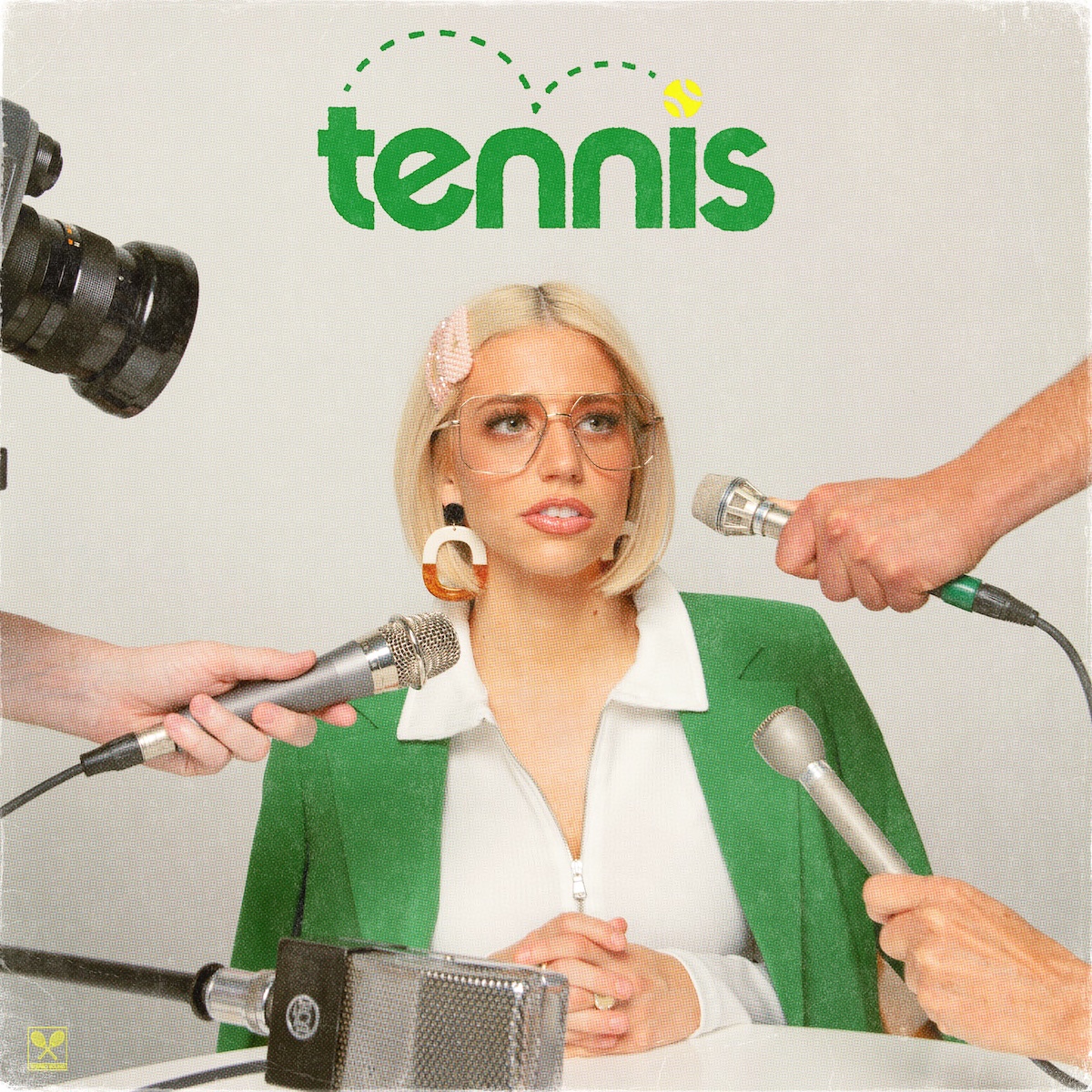
It really doesn't. In the interest of passing it forward, who are you listening to these days that you would recommend to our readers?
Josie Dunne: I’ve been completely obsessed with this artist, Dora Jar. Dora, like the Explorer. And then Jar, like Mason. She’s so cool. I’ve loved the new Charli XCX album a lot, and the new Rex Orange County album. And I’m completely obsessed with the Dijon album. The Dijon album feels like TENNIS for grown-ups to me. [chuckle]. I love that record so much – I think he’s amazing. I just saw him play in Nashville and it was really super cool.
Great work. What's the reaction been so far? What's it been like having it out there?
Josie Dunne: It’s been really good, and I’ve been really happy with it! Spotify gave us some love, and so did Apple Music. I’m just really grateful. I feel like people really listened to this album with a little stronger ear than they’re used to using with me, and it just has made me super grateful. That’s how it was made, and so I’m glad that that’s how it’s being consumed.
— —
:: stream/purchase TENNIS here ::
Stream: ‘TENNIS’ – Josie Dunne
— — — —

Connect to Josie Dunne on
Facebook, Twitter, Instagram
Discover new music on Atwood Magazine
? © Bree Marie Fish
:: Stream Josie Dunne ::

